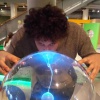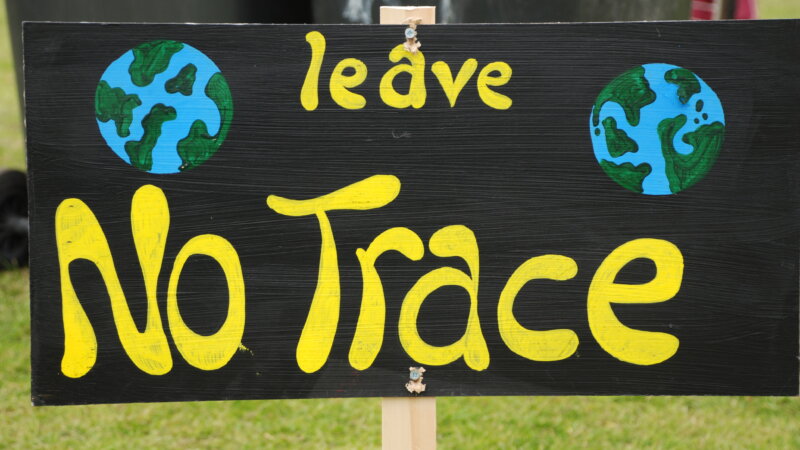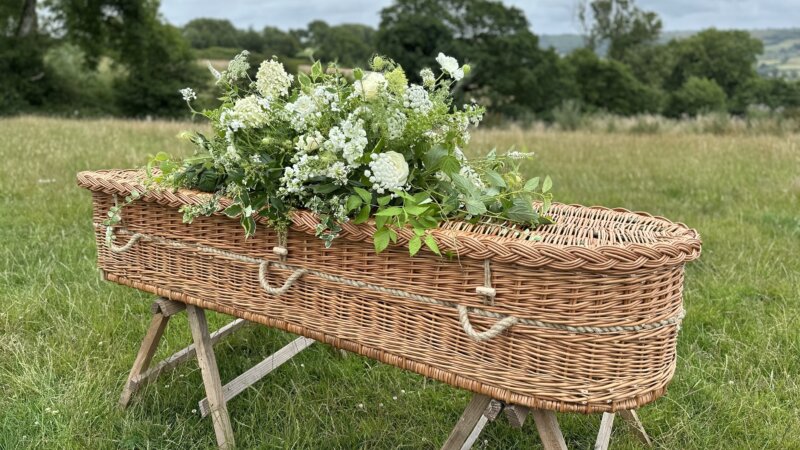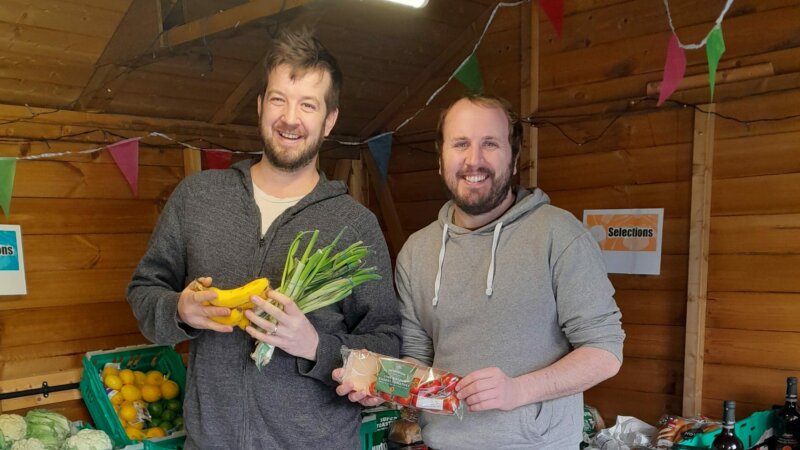Vincent Moon: How far can you go without money?
Vincent Moon is a French filmmaker who started out working for La Blogothèque, a music website which has since become incredibly popular, due in no small part to Moon's contributions to its Take-Away Shows project. The concept was to create single take film recordings of bands and musicians performing in unusual spaces without direction from the filmmaker, often shortly after finishing scheduled gigs. The result is some of the most intimate live footage I have ever seen, and quite rightly earned Moon international recognition.
After a couple of years, Moon moved on from the Take-Away Shows to work on his own projects, making films for Mogwai, Efterklang, R.E.M, Beirut, The Arcade Fire and The National, before setting up Petites Planètes, a 'nomadic' film label which aims to document aural and visual traditions from all around the world.
Moon himself has been on the road for over three years, funding his projects with the goodwill of the people he meets with a view to releasing all of his work onto the internet for free.
How long have you been travelling for and where in the world are you currently?
I have been constantly on the road for more than 3 years now, a personal experience on nomadism into this new world. I am now in the cordillera of the north Philippines, researching old singing forms.
What is the idea behind Petites Planètes and what were the circumstances surrounding its creation?
I ended up homeless by accident and started to spend more and more time in places I was not familiar with. Little by little, my interest in indie music moved towards a wider expression of 'folklores' around the world, and the way people use music to communicate with each other, to gather and exchange, in a spiritual way or not, from ancient rituals to modern forms of popular music.
To create my nomadic label Petites Planètes was obvious then as a place to gather all those adventures and portray those people and cultures in the best way I could, sharing them via a website which acts very much as a collection of experiments in ethnography, without any genre boundaries at all; just a complex mosaic of cultures and sounds, in a holistic way as much as possible. I don't come from any academic background and this website acts very much like this subjective collection of adventures in sound. Those new films just wouldn't fit properly into La Blogothèque, as this blog was and is very much into indie music.
The website mentions the label is a way to blur the lines between performer and audience. This has been a large part of your projects over the last few years. Why?
In regards to what we call 'traditional music', but which actually doesn't exist purely, the idea of having a performance in front of people, to have a marked separation between listener and performer, is a false step. Music originates from a need to communicate with nature, with spirits, with each other, and nothing as specialised as a musician existed in the ancient times.
The desire to reconnect with some very ancient forms of society and community, through the use of new technologies, is I think very much where the world is going now. With the little recordings I make around the world, I try to question those topics and see where we could find an ideal balance; between the organic and the digital, between nature and technology. I don't think we will come back to a primitive state, but that we are now in the process of building new traditions, new cults, new rituals based on the ancients.
Is the project sustained entirely by donations? Have you come across any problems with crowd funding?
I just live with the generous help of people inviting me to film around the world, who host me, help me in my travels and so on, or with the little money I make sometimes during my screenings. I mostly live without money. It's a great experience and I want to push it forward. I also don't believe in the idea of money exchange against those little films, which is why I want them all to be free. To do such films, I guess you have to acknowledge the fact that you will never know what's going happen; that any idea on paper will never be realised later but that you have to go with the wind.
Why is the Creative Commons model an appealing way for you to release your work?
It's an obvious tool nowadays, based on my convictions and the way that people could share in our generation. I don't believe at all in the old copyright way and by using CC licenses I hope to inspire people to do the same.
How much do you plan your films? Do you just go in, meet the people and decide on the spot what you will do? Do you ever 'direct' musicians?
Improvising is the key, definitely - going with the flow and feeling the moment. I think less and less beforehand, always trying to come back to this very organic way of being completely spontaneous. That's the ultimate goal, not with my films but with my life in general. I don't claim to be a 'director' as I don't think I can direct anything. I just react to a moment.
Who do you consider to be your biggest influences, filmmakers or otherwise?
I guess the list is pretty long really. I spent many years of my life watching films every day, and I consider anything as an influence. Even bad films actually have more impact sometimes. You can check the About section of petitesplanetes.cc to get some names who influenced me in the past two years, but most of those people don't do things in the field of cinema. Just to name a few though, I would cite Carlos Reygadas, Stephen Dwoskin and Robert Gardner as recent influences.
But nowadays I am more inspired by simply travelling alone around the world, meeting people and - I know it will sound lame - by the sounds of deep nature, the screams of bats or the presence of the wind. You can't just put those things into words.
What have been some of your favourite experiences since you started Petites Planètes?
Amongst the most important of the recent recordings I have made, I would say that a film in Indonesia about a popular trance ritual named Jathilan really impacted me a lot and considerably evolved my approach to 'wording other cultures' in a way, because this ritual is just impossible to describe with a Western approach to cultures. The desire to explore an experimental take on ethnography - not only an experimental film approach to ethnography - has since then taken off. These are very exciting times to experiment with cultures, as if everything is permitted depending on your own ethics anyway. As long as the body immerses himself, you can be sure it's the right path to follow.
Tell me about the Esperando El Tsunami project you filmed in Colombia. I haven't seen it but I read somewhere that it is one of your favourite films you have made.
It was a life changing experience, very much because of the whole process of creation. To put it simply, we started the trip with a certain idea of exploring music in Colombia, but not much more precise than visiting various peoples and playing with them. The course of the filming went very wrong at some point. Everything started to explode on us, the film was not going at all the way we thought it would and we took it as a failure at the time.
A few weeks later, just before leaving the country, I had a shamanic experience after taking yagé (the local version of ayahuasca) and went into a deep trance, very violent and intense. That trance changed my life and opened me up to a completely different approach to life.
A few months later, after becoming obsessed with what happened on that specific night and having remembering enough elements of it, I edited the film following the evolution, the path of the trance, towards that enlightenment, and it all made sense. The film had been directed by nature and we were just its conduits. It was a complete revolution inside me in the way I was thinking about 'creation', but also simply about the everyday approach to life and being with others. I am now working on it, trying to just be in the moment without tomorrow, and letting signs guide me towards the next step.
Do you think you could have achieved as much as you have in such a short space of time if money had been involved in your film work?
Of course not. For many people it seems money creates more possibilities, but to me money leads to other people looking inside, other type of responsibilities, contracts to sign and so on. I tried it and I know what I am talking about! I lost all my freedom and my energy dealing in such conditions. I never want this to happen again.
I actually take it as a beautiful experiment. How far can you go without money nowadays? How much can people help, and give of themselves just for the beauty of doing something unique? I am constantly amazed by how many people want to help me to make those little films when they understand what I will do with them - share them for free, for the pleasure of having people discovering other cultures in such a way.
I strongly defend piracy anyway. The best thing to tell people about piracy is this: the only way to avoid piracy is to not make things for money, to share everything for free. In my world, piracy doesn't exist.
When hosting workshops, what sort of things do you teach?
I tell people that I can't teach, and then we go out of the room and have a good time.







